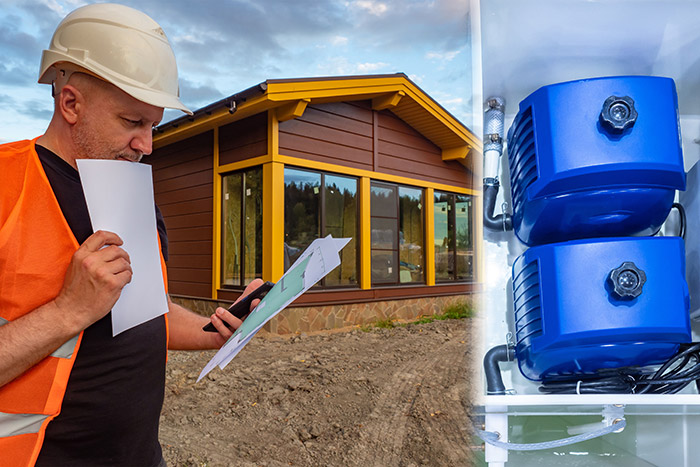
Are you confused about why you might need a septic inspection before selling your home? Or are you buying a new home with a septic system? Get expert advice on septic systems and work with an experienced real estate agent in the process.
Before purchasing a house, prospective buyers usually hire an inspector to complete an inspection. The inspection often includes inspecting the structure of the house and checking for any pests. One of the most important aspects of the house is the septic inspection.
Septic inspections are crucial for your health and that of anyone else living in your home, so homeowners should make sure to schedule them regularly. However, because septic systems are buried in the ground, they're often the last thing on many homeowners' minds — until something goes wrong.
Here's everything that you'll want to know about your septic inspection when you are looking to buy or sell your house.
What is a septic system?
One in five homes in the US has a septic system but you'd be surprised how many people don't actually know what they are. A septic system is a system set up to remove the waste from your house.
In working condition, it takes the water and waste from the washer, sinks, showers, and toilets and filters that water. The system then redistributes it into the ground. The entire process helps to decrease water and soil pollution.
How often should you get a septic inspection?
According to most experts, you should get your septic tank inspected at least every three to five years. The inspection usually lands around the time that you should also have a professional septic tank pumping service pump the tank. Pumping the septic tank is necessary to keep your septic tank healthy and in satisfactory working order.
Despite what experts recommend, many homeowners wait much longer than five years to have their septic tank inspected. Many wait until something goes wrong to have the septic inspectors over. At that point, inspectors will often recommend you repair or replace your septic system, which can cost thousands of dollars.
Getting a regular inspection and pumping will not only save you money from needing a major repair, but it will also help deter any unwanted surprises if you decide to sell your house later.
How is a septic inspection done?
There are two types of septic inspections.
Visual Inspections
When buying or selling a house, the home inspector will usually complete a visual inspection.
A visual inspection involves asking a few questions, such as how old the house is, how often the owner pumps the septic system, and when the last inspection was. The inspector will then flush all the toilets and run all the water in the house to make sure the water pressure is up to par and everything is draining properly. Finally, the inspector will go out to the drain field to make sure there is no standing water, which can indicate a cesspool.
A visual inspection is helpful and quick, but a full inspection can really tell you the real story behind the health of the septic system.
Full Inspections
A full inspection includes everything a visual inspection includes, but it also goes the extra mile. This inspection is the one you'll want to get done every three to five years.
In a full inspection, inspectors will remove the cover to the septic tank and check the water level. The water level can or show whether the water is draining properly. The inspector will then run water in the house to make sure it is properly flowing from the house to the septic tank, and to make sure the water level within the tank does not rise when they introduce more water.
The inspector may use a dye test during this part of their inspection. In a dye test, the inspector will introduce dye into the water that is being drained to see how much of it enters the septic tank.
From there, the septic tank will get pumped and the inspector will check for any backflow from the absorption area. The backflow level tells the inspector if there is a problem with your drain field. The flow level is then checked again to make sure every aspect of the septic system is in working order and there are no blockages.
For more information, contact Morse Engineering and Construction.
Source: listwithclever.com
